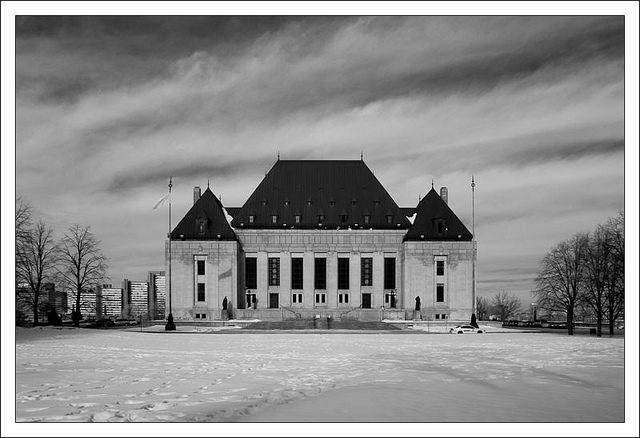Mohamed Harkat, arrested on International Human Rights Day, December 10, 2002 on a security certificate, is still fighting the Canadian government’s secret case and potential deportation to torture in Algeria.
His case is being heard in public on October 10 and then, in a dangerous precedent, the Supreme Court will retire to conduct a secret hearing at an undisclosed secure Ottawa location on Friday, Oct. 11.
Harkat has faced over a decade of secret hearings held by the Federal Court of Canada. Matthew Behrens, rabble’s national security columnist, reported on Harkat’s upcoming hearing in a recent column, which scrutinizes the process of secret trials in Canada and the increasing trend toward secrecy:
“The secret trials regimen was declared unconstitutional by the Supreme Court of Canada in 2007 in the seminal Charkaoui decision, in which the court asked, plainly, how one meets a case one does not know. On October 11, Mr. Harkat will be no closer to knowing the case he has to meet. His partially public hearing will be held on October 10.
It says something about the degraded system of Canadian justice that the nine individuals who have the ultimate legal say when it comes to fundamental issues such as due process and rule of law will be sitting in secret session, adding to the growth of a parallel secret judicial system that is bound to grow and flourish along with other trends toward secrecy in Canadian government.”
Behrens will join a collection of Ottawa-area writers and performers on the evening of October 10 to read a staged adaptation of Kafka’s The Trial in conjunction with Harkat’s Supreme Court challenge.
“We read Kafka to understand how easily our nightmares become the life we create for ourselves, and for others,” said participating writer Alan Cumyn. “The Trial is a wake-up call, sadly never out of date, not even in Canada, not even now.”




